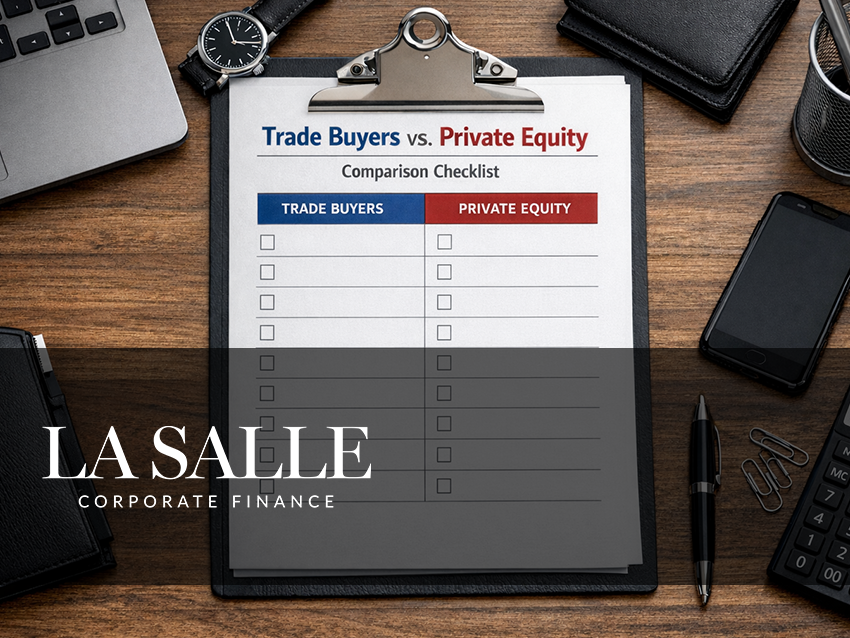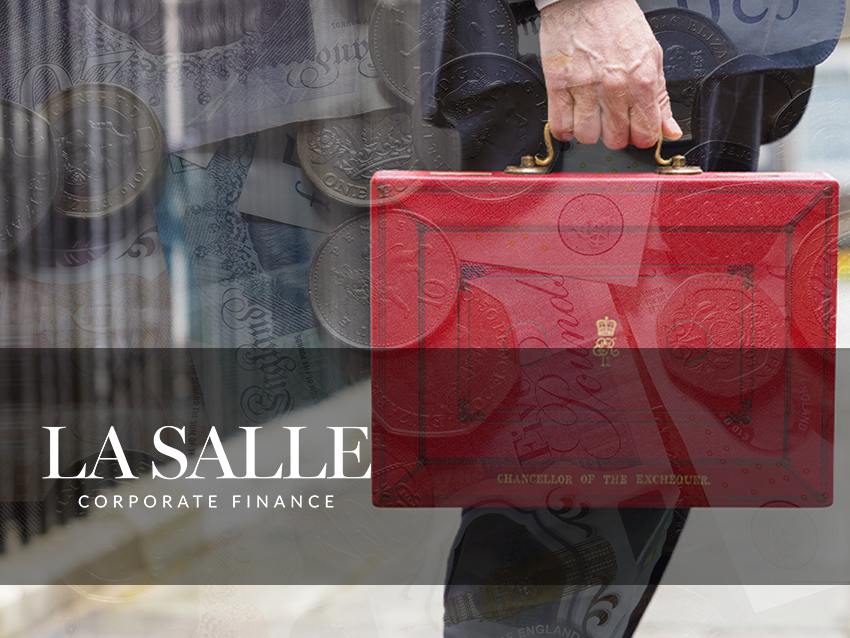Focus On: Deal Structure
Part of our Focus On series of resources.

Deal Structure
The structure of a deal is just as important as the price, and sometimes even more so. Payment terms, timing, and the level of risk all play a critical role in determining whether an offer truly meets your objectives. Our job is to structure the transaction in a way that’s as attractive and secure as possible for you.
There’s no one-size-fits-all solution. At La Salle Corporate, we’re experienced in designing deal structures that align with each client’s commercial goals, personal priorities, and tax considerations.
Below are some of the most common structures used in transactions:
1. Cash at Completion
This is the cleanest and most straightforward option. The full purchase price is paid on the day of completion, held in the solicitor’s account, and transferred directly to the seller. It provides immediate liquidity and a clear exit with minimal ongoing involvement.
2. Deferred Payments
In this structure, part of the consideration is paid over an agreed period, for example, quarterly, every six months, or annually. Deferred payments can increase the total price achieved, while reducing risk for the buyer. For sellers, they can offer flexibility and a structured flow of funds over time.
3. Earn-Out
An earn-out links future payments to the company’s performance after the sale. This can help bridge valuation gaps between buyer and seller and can be particularly effective when the seller remains involved in the business. It ensures both parties are aligned on growth and value creation, while giving the seller the chance to benefit from future success.
4. Investment (Partial Sale)
This type of structure allows shareholders to de-risk by taking a portion of cash off the table now while retaining a stake in the business. It’s common in private equity transactions, where owners stay involved with a shared goal to scale the company. This approach can lead to a “second bite of the cherry”, a future exit at a higher valuation.
5. Shares as Consideration
Instead of receiving the full amount in cash, part of the consideration may be in shares of the acquiring company. This can be attractive when selling to a larger entity, allowing sellers to participate in the buyer’s future growth and keep their capital actively invested rather than parked in cash.
Structuring with Strategy
The right deal structure depends on many factors, from your personal plans and tax position to the buyer’s strategy and funding model. Our role is to evaluate every option, negotiate the most favourable terms, and make sure the structure aligns with your objectives both now and in the future.
More News & Deals...
Our 'Focus On' Resource Series...


















